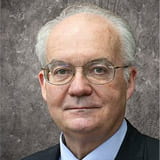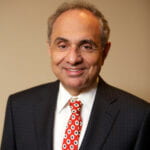 Gerald P. O’Driscoll Jr.
Gerald P. O’Driscoll Jr.
Gerald O’Driscoll is a senior fellow at the Cato Institute. He is a widely quoted expert on international monetary and financial issues. Previously the director of the Center for International Trade and Economics at the Heritage Foundation, O’Driscoll was senior editor of the annual Index of Economic Freedom, co-published by Heritage and The Wall Street Journal. He has also served as vice president and director of policy analysis at Citigroup. Before that, he was vice president and economic advisor at the Federal Reserve Bank of Dallas. He also served as staff director of the Congessionally mandated Meltzer Commission on international financial institutions. O’Driscoll has taught at UCSB, Iowa State University and New York University.
He is widely published in leading publications, including The Wall Sttreet Journal. He appears frequently on national radio and television, including Fox Business News, CNBC and Bloomberg. He is a director of the Association of Private Enterprise Education. O’Driscoll holds a B.A. in economics from Fordham University, and an M.A. and Ph.D in economics from UCLA.
Mario J. Rizzo 
Mario J. Rizzo is the co-director of the Classical Liberal Institute and an Associate Professor of Economics at NYU. He is also the Director of the Program on the Foundations of the market Economy in the Department of Economics and the chairman of the Colloquium on Market Institutions and Economic Processes. He has been a law and economics fellow at Yale Law School and the University of Chicago Law School. He teaches a yearly seminar at the NYU Law School called “Classical Liberalism.” He is the author of many articles in economics and in law journals.
Professor Rizzo’s current research is focused on new or soft paternalism, behavioral economics, and the economic theory of rationality. He is completing a book on the subject.
His research is grounded on four fundamental premises: (1) the decentralization of knowledge in a complex society, such as ours, is important in the explanation of both economic and social phenomena; (2) human action should be understood in a contextual way — both the individual and social context is needed to make sense of what people do and how they relate to one another; (3) these phenomena are, wherever possible, best viewed as processes in time; and (4) economic and social policies usually have important unintended consequences.